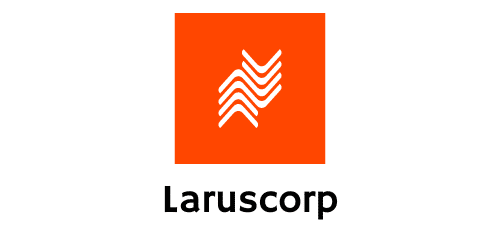
What are the critical elements of a successful digital advertising campaign for UK SMEs?
In the fast-paced world of digital advertising, small and medium-sized enterprises (SMEs) in the United Kingdom face unique challenges and opportunities. As the digital landscape continues to evolve, it's crucial to understand the critical elements that can make or break a digital advertising campaign. Whether you're a fledgling startup or an established business looking to boost your online presence, this guide will provide you with the insights needed to navigate the complex digital terrain successfully.
Understanding Your Target Audience
Before diving into the myriad of digital marketing channels and strategies available, it’s essential to start with the target audience. Knowing who you are trying to reach is the cornerstone of any successful marketing campaign.
Lire également : How to create a robust cybersecurity framework for protecting UK e-commerce platforms?
Who is Your Target Audience?
Your target audience comprises the individuals who are most likely to benefit from your products or services. Understanding their demographics, interests, and behaviors is paramount. This knowledge allows you to tailor your messaging and choose appropriate marketing channels effectively. For instance, a fashion retailer might target young adults interested in the latest trends, while a B2B software company might focus on decision-makers in specific industries.
How to Research Your Audience
Conducting thorough market research is a crucial step in identifying your target audience. This can include:
Cela peut vous intéresser : Create professional videos fast with this easy video editor
- Surveys and Questionnaires: Direct feedback from potential customers.
- Social Media Analytics: Insights from platforms like Facebook, Instagram, and LinkedIn.
- Website Analytics: Tools like Google Analytics to understand visitor behavior.
- Competitor Analysis: Understanding who your competitors are targeting can provide valuable insights.
Creating Buyer Personas
Once you have gathered sufficient data, creating buyer personas can help crystallize your understanding of your target audience. These semi-fictional characters represent your ideal customers and include detailed information such as age, gender, job role, interests, and buying behaviors. Each persona should reflect a significant segment of your audience, providing a clear picture of whom you are speaking to in your marketing efforts.
Crafting a Comprehensive Marketing Strategy
A marketing strategy is your roadmap to achieving your business goals through various marketing efforts. For SMEs in the UK, a well-rounded strategy should encompass a mix of content marketing, social media marketing, and email marketing, among others.
Content Marketing
Content is the backbone of any effective digital marketing campaign. High-quality, relevant content attracts and engages your audience, building trust and authority in your industry.
- Blogging: Regularly updated blogs on your website can drive organic traffic and improve SEO. Focus on topics that address your audience's pain points and provide valuable solutions.
- E-Books and Whitepapers: Offering in-depth resources can position your brand as a thought leader and generate leads through gated content.
- Videos and Webinars: Visual content is highly engaging and can be shared across multiple platforms to reach a broader audience.
Social Media Marketing
Social media platforms are vital for engaging with your audience on a personal level. Choosing the right platforms is crucial, as different demographics gravitate towards different networks.
- Facebook and Instagram: Ideal for B2C businesses looking to build brand awareness and foster community engagement.
- LinkedIn: A must for B2B companies aiming to connect with industry professionals and decision-makers.
- Twitter: Effective for real-time engagement and sharing timely updates.
Email Marketing
Email marketing remains one of the most cost-effective channels for reaching your audience directly. Building a robust email list and segmenting it based on customer behavior and preferences can enhance the effectiveness of your campaigns.
- Newsletters: Keep your audience informed about company news, product updates, and industry trends.
- Promotional Emails: Announce special offers, discounts, and limited-time deals to drive conversions.
- Automated Drip Campaigns: Nurture leads through a series of automated emails designed to guide them through the buyer's journey.
Leveraging SEO for Increased Visibility
Search Engine Optimization (SEO) is a critical component of your digital strategy. It involves optimizing your website and content to rank higher on search engine results pages (SERPs), thereby increasing your online visibility.
On-Page SEO
On-page SEO refers to the optimization of individual web pages to rank higher and earn more relevant traffic.
- Keyword Research: Identify relevant keywords that your target audience is searching for. Use tools like Google Keyword Planner to find high-volume, low-competition keywords.
- Meta Tags and Descriptions: Ensure that each page has a unique meta title and description that includes target keywords.
- High-Quality Content: Create valuable, relevant content that addresses the search intent of your audience. Include keywords naturally within the content.
Off-Page SEO
Off-page SEO focuses on activities outside your website that can improve your rankings.
- Backlinks: Earn high-quality backlinks from reputable websites in your industry. Guest blogging, collaborating with influencers, and participating in industry forums can help.
- Social Signals: Engagement on social media platforms can indirectly influence your SEO efforts by driving traffic to your website and increasing brand awareness.
Technical SEO
Technical SEO involves optimizing your website's infrastructure to ensure search engines can crawl and index your site effectively.
- Mobile-Friendliness: Ensure your website is responsive and provides a seamless experience across all devices.
- Site Speed: Optimize your website's loading speed to improve user experience and reduce bounce rates.
- XML Sitemaps: Create and submit an XML sitemap to search engines to help them understand your website's structure.
Utilizing Multiple Marketing Channels
In today's digital marketing landscape, an omnichannel approach is essential for reaching your audience effectively across various touchpoints.
Paid Advertising
Paid advertising can provide immediate visibility and drive traffic to your website. This includes:
- Pay-Per-Click (PPC): Platforms like Google Ads allow you to bid on keywords and display ads to users actively searching for related products or services.
- Social Media Ads: Utilize Facebook, Instagram, LinkedIn, and Twitter ads to target specific demographics based on interests, behaviors, and locations.
- Display Ads: Visual ads that appear on websites and apps within the Google Display Network.
Influencer Marketing
Collaborating with influencers can amplify your brand's reach and credibility. Identify influencers whose audience aligns with your target market and engage them in promoting your products or services.
- Micro-Influencers: Smaller influencers with highly engaged audiences can provide authentic endorsements.
- Macro-Influencers: Larger influencers can offer extensive reach but may come at a higher cost.
Traditional Media Integration
Combining digital and traditional media marketing strategies can enhance your overall campaign effectiveness. This can include print ads, radio spots, and TV commercials that drive traffic to your digital channels.
Measuring and Optimizing Campaign Performance
To ensure the success of your digital advertising campaigns, it’s vital to continuously measure and optimize performance.
Setting Clear Objectives
Start by defining clear and measurable objectives for your campaigns. These could include:
- Increasing Website Traffic: Aim to boost the number of visitors to your site.
- Generating Leads: Focus on capturing contact information from potential customers.
- Driving Sales: Aim to convert website visitors into paying customers.
Key Performance Indicators (KPIs)
Identify KPIs that align with your objectives and track them regularly. Common KPIs include:
- Conversion Rate: The percentage of visitors who complete a desired action, such as making a purchase or filling out a form.
- Cost Per Acquisition (CPA): The average cost of acquiring a new customer.
- Return on Investment (ROI): The revenue generated from your campaigns compared to the cost.
Analyzing and Optimizing
Regularly analyze your campaign performance using tools like Google Analytics, social media analytics, and email marketing platforms. Identify what's working and what needs improvement.
- A/B Testing: Experiment with different ad creatives, headlines, and calls-to-action to determine what resonates best with your audience.
- Adjusting Budgets: Allocate more budget to high-performing campaigns and reduce spending on underperforming ones.
- Refining Targeting: Continuously refine your audience targeting based on data insights to improve campaign effectiveness.
For UK SMEs, building a successful digital advertising campaign involves a delicate balance of research, strategy, execution, and optimization. By understanding your target audience, crafting a comprehensive marketing strategy, leveraging SEO, utilizing multiple marketing channels, and continuously measuring and optimizing your efforts, you can create campaigns that drive meaningful results and propel your business forward. The digital landscape may be complex, but with the right approach, your SME can thrive in the online marketing arena.
